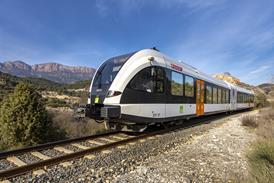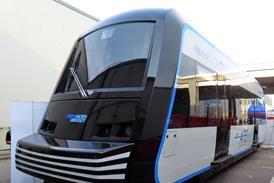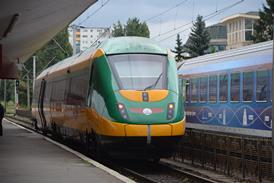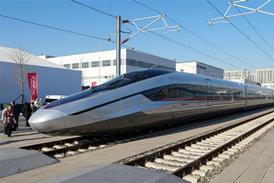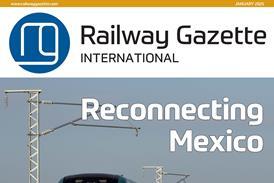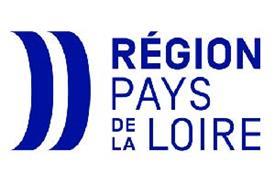POLAND: National long-distance train operator PKP Intercity has signed a contract for Stadler to supply a 12 eight-car Flirt electric multiple-units and maintain them for 15 years.
Stadler and a consortium of Pesa Bydgoszcz with its subsidiary ZNTK Mińsk Mazowiecki submitted bids in response to the operator’s December 2017 call for tenders. Stadler was named preferred bidder last month, as its 1·015bn złoty offer was the only one within the budget of 1·025bn złoty. Following the standstill period, the deal was signed at Stadler’s Siedlce plant on August 21.
The TSI-compliant EMUs will complement the 20 Stadler ED160 sets which have covered more than 23 million km since entering service in December 2015.
They will have lightweight aluminium bodies and air-conditioned interiors designed for long-distance travel, with first and second class areas, a lounge bar, ergonomic seats with individual lighting and power sockets. There will be provision for passengers with reduced mobility, ‘modern’ toilets, and an ‘advanced’ real-time passenger information system.
Growing ridership
PKP Intercity carried 22·8 million passengers in the first six months of 2019, a 6% increase on to the same period in 2018 and the highest figure for 10 years.
‘The first half of the year was very successful for us, due among other factors to the excellent results during the winter holiday and long May weekend travel peaks’, commented President of the management board Marek Chraniuk. ‘It is worth emphasising that in each subsequent month we carried more passengers than in the previous one. This is a very good omen for the second half of the year.’
PKP Intercity’s busiest route was Warszawa – Kraków with 1·3 million passengers in the first half of the year, while 950 000 people travelled between the capital and the tri-city region encompassing Gdańsk, Sopot and Gdynia.
Plans for the rest of this year include calling tenders for the modernisation of 90 Type 111A and 141A second class coaches and refurbishment of 40 Type Z1A/Z1B coaches, the modernisation of 20 EU/EP07 locomotives for 160 km/h operation, and the supply of 10 shunting locomotives and 10 multi-system electric locos with options for five more.

